More women than ever are running for office in the 2018 national election. That sounds impressive, but it isn’t. Zoom out and the percentage is still low. Merely 2.6 per cent of the total candidates in the fray, for 723 national and provincial assembly constituencies, are women.
According to the electoral rolls, there are 105,955,409 voters registered for the July polls, of which 44 per cent are female.
What’s fueling the desire to run?
One reason for the deluge of female candidates is Pakistan’s Elections Act 2017, passed last October. Under it, political parties are required to field women on at least five per cent of the contestable seats. Keeping that in mind, all major political parties allotted tickets to a certain number of female candidates. (58 parties did not issue tickets to a single female candidate).
Even those who did, it seems, made sure they only met the bare minimum requirement, as mandated under the law. This suggests that many of these women are not considered serious contenders, by their own political parties.
Who are they? (Some prominent names)
Dr Firdous Ashiq Awan
Awan was formerly the minister of information and broadcasting. She left the Pakistan Peoples Party (PPP) in 2017 to join the Pakistan Tehreek-e-Insaaf (PTI). Currently, she is the PTI candidate for NA-72 in Sialkot, Punjab.
Dr Yasmin Raashid
The doctor joined the PTI in 2010 and was fielded by the party in the 2013 election against former Prime Minister Nawaz Sharif in Lahore. She lost both the general and the subsequent by-election. Raashid is in the running again for NA-125 in Lahore, Punjab.
Ghulam Bibi Bharwana
Bharwana from an influential family in Jhang, Punjab, was first elected to the national assembly in 2002 from the Pakistan Muslim League-Q platform. She was re-elected again in 2008. In 2013, she joined the Pakistan Muslim League-Nawaz and was once again successful in securing a victory. However, last year, she gave up her parliamentary seat and in May joined the Pakistan Tehreek-e-Insaf. She is currently PTI’s candidate for NA-115 (Jhang).
Saira Afzal Tarar
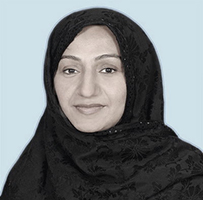
The former minister of health has enjoyed a winning streak in her home constituency of Hafizabad, Punjab, since 2008. Tarar has stayed loyal to the PML-N for the last two elections and is again in the fray for NA-87.
Shezra Mansab Ali Khan
Unlike some of the previously listed names, Mansab is a new entrant to the political arena. She only stepped forward in 2015, after the death of her father Rai Mansab Ali Khan Kharal, a former state minister. She won the by-election in Nankana, Punjab, and is contesting from the same constituency on a PML-N ticket again.
Tehmina Daultana
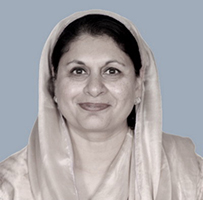
A seasoned politician, Dultana was first elected on a general seat to the parliament in 1993. Since then she alternated between contesting and take up a reserved seat for women. In the past, she has also served as the minister for women development in a PML-N cabinet. She is the party’s choice for NA-164 (Vehari) in 2018.
Samina Khalid Ghurki
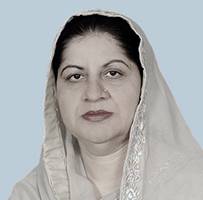
Gurki’s husband had been the politician in the family until very recently. A PPP loyalist, he had been contesting and winning from Lahore, Punjab, since the 90s. After he fell ill, his wife replaced him in the political battleground and was elected to the national assembly in 2008. Thereafter, while Gurki has not been successful in bagging the constituency, she is nonetheless a prominent name in the list of candidate for NA-132 (Lahore).
Faryal Talpur
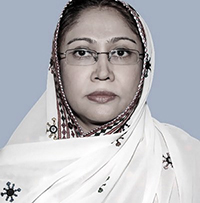
The sister of former president Asif Ali Zardari, is a centre stage leader in the Pakistan Peoples Party. She has been a member of the national assembly since 2008, elected on a general seat from Larkana, Sindh. The party has fielded Talpur again in NA-207 (Larkana).
Asma Arbab Alamgir
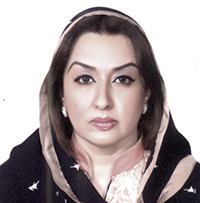
Alamgir and her husband are a political duo. Her husband was the ex-federal minister for communications, while she has served as the president of PPP’s women wing. Alamgir was first elected to the national assembly on a reserved seat from the Khyber Pakhtunkhwa province in 2008. She is currently the PPP’s choice for NA-27 (Peshawar). Her husband is also in the race.
How have women been faring in the past?
After the 2013 polls, 60 women made it to the 342-member parliament on reserved seats. While only nine were elected on general seats, which is merely 3.3 per cent of the total house.


